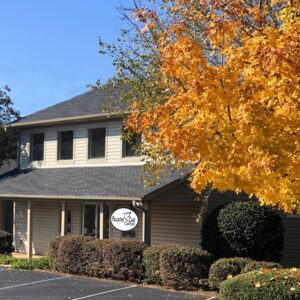What is Palliative Care?
Palliative care, also known as Supportive Care, is specialized medical, nursing, social, and spiritual care that works to reduce the symptoms, pain, and stress of people living with a chronic or advanced illness.
Palliative Care services are appropriate for patients of any age, at any stage of an illness and can be provided at the same time as curative treatment. Serious illnesses bring about the need for information, choosing new paths and making choices—for now, and in the future.
How does Palliative Care help?
The Palliative Care Team will help you and your family:
- Learn more about your disease
- Learn about care options
- Clarify goals of treatment
- Support medical decisions
- Pain and symptom management
- Help with Advance Care planning
- Provide emotional support
- Provide spiritual or religious support
- Make referrals to community agencies
- Assist with obtaining medical equipment/supplies
Would Palliative Care benefit me?
Palliative Care may be helpful if you have a serious illness that will worsen or may not be responding to medical treatments.
Chronic medical conditions often served by Palliative Care:
- Advanced heart disease
- Advanced lung disease such as COPD, end-stage kidney disease
- Multiple Sclerosis (MS)
- Cancers
- HIV/AIDS
- Advanced dementia, including Alzheimer’s
It may also be helpful if you experience any of the following:
- Frequent Emergency Room visits
- Frequent Hospital Admissions
- A medical condition that is worsening
- Malnutrition and losing weight due to advanced disease
- Functional status changes (i.e. decreased mobility)
How does Palliative Care work?
The Palliative Care Team works with your physicians and other health care team members to help manage the pain and symptoms associated with your illness. The team often works with family members when the patient is unable to either participate in discussions or make choices for themselves.
Where is Palliative Care provided?
Palliative Care can be provided inpatient or outpatient. Inpatient services are provided at Self Regional Healthcare by the Supportive Care Team. Outpatient services handle home and clinic-based services.
Is there a separate cost for Palliative Care?
Palliative Care is available to any patient, regardless of ability to pay. Most insurance plans, including Medicare and Medicaid, cover the cost of Palliative Care.
Who is the Palliative Care Team?
The Palliative Care Team consists of:
- Physician
- Nurse Practitioner
- Social worker
- Chaplain
Nurse Practitioners with specialized, training in complex chronic illnesses, end-of-life concerns, pain, and symptom management. They will educate patients and families on disease progress, care options, and advance care planning.
A social worker, chaplain, and other therapies are available based on the needs of the patients.
Is Palliative Care the same as Hospice?
Although both promote comfort, hospice serves patients with a limited life expectancy of six months or less. Palliative Care does not require a terminal diagnosis.
Palliative Care supports patients and families through all stages of a serious illness. Palliative Care may be combined with therapies aimed at curing the illness or focus on management of the symptoms.
Referral Process
Anyone can request a consultation for Palliative Care—patient’s doctor, nurse, social worker, hospital discharge planner, case manager, family member, or patient.
Practice locations:
Palliative Care Center

Consultant service provided outpatient (clinic-based or home-based visits). Available to patients with various chronic medical conditions including heart failure, dementia, COPD, etc.) Physician referral order is not required. Family, friends, or the patient can obtain referral.
- Referrals via EPIC (i.e. SMG referral to Hospice/Palliative Care-Drop down box highlight The Palliative Care Center). This will fax directly to The Palliative Care Center and the office will schedule visits.
- Contact clinician at 864.227.9393 and ask for Palliative Care or fax patient contact information to 864.889.0413.
Inpatient Supportive Care

Consultant service with Self Regional Healthcare available for patients admitted to the hospital.
- Referral order via EPIC required (i.e. Supportive Care Referral)
- Contact clinician at 864.725.5155 (spectra-link) or 864.725.5158 (after hours voicemail)
Supportive Care Clinic
House within the Cancer Center of Self Regional Healthcare weekly on Mondays. Available to Cancer patients only.
- Referral order via EPIC required (i.e. OP supportive care). Scheduling by the Cancer Center.
